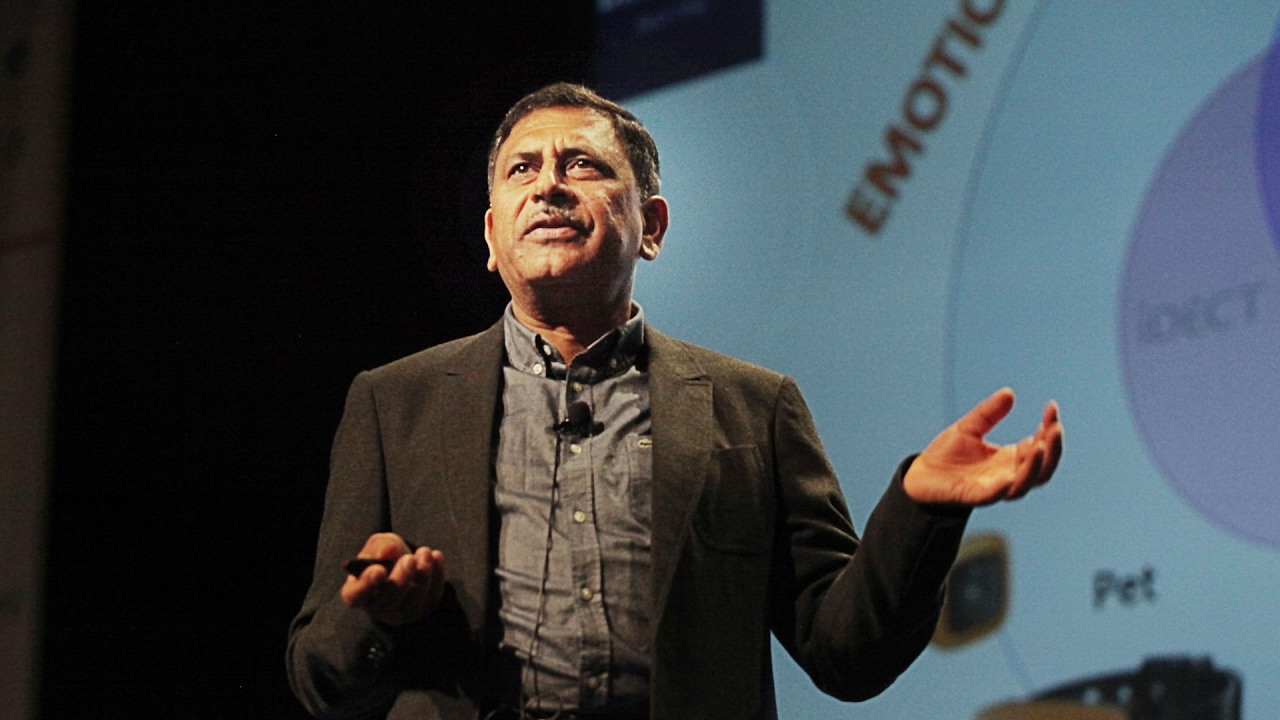
HE IS NOT A BUSINESSMAN. HE IS NOT A DREAMER. He is a visionary. And he knows the difference between the two. So, there are a number of things which come into play for a company to be successful and most importantly there is luck,” quips extraordinary technologist Kanwar Chadha, better known as Mr GPS.
Chadha founded SiRF Technology in 1995 in San Jose, California, with nothing more than a simple but daring vision: GPS for consumers. Today, he has over 20 patents in GPS-enabled applications, and has recently worked on a high bandwidth wireless technology that has been acquired by Facebook.
Born and raised along the borders of northern India, Chadha grew up to be a humble trailblazer striving to shape the world of technology and innovation. He graduated from India’s premier engineering institute, IIT-Delhi, and went to the United States to further his education and witness the American dream. “I did my MBA and MS together from University of Pennsylvania and got my first job at Intel. My plan was to have some experience in the US and then go back to India. But that five-year-plan has remained such ever since.”
After moving to the Silicon Valley — the hub for technologists, where innovation and entrepreneurship is a part of everyone’s DNA — Chadha began to push the boundaries. “Intel gave me lots of freedom to do things the way I wanted to do.” But, after a certain period of time, he started feeling the constraints of working in a big company. “I had ideas about some new processors which I was developing, but Intel wasn’t committed to that project. That was the first motivation for me to go and do things the way I wanted to.”
Chadha took the brave step of leaving Intel at a time when he was taking a significant step forward in his personal life. “I left Intel and started my own venture at the time when I got married. It was quite a shock for my wife. We didn’t even tell her family for some time because they had married their daughter to someone who was working with Intel, and here was this man with a no-name startup,” Chadha smiles.
Chadha’s first entrepreneurial venture — a company that developed multimedia and 3D graphic acceleration products — was called AQuest. Unfortunately, it couldn’t succeed because of lack of funds.
Not that it deterred Chadha. “Failures are the best learning practices for a man.” But, then came SiRF — a company which aimed to bring GPS-enabled location technology to mainstream markets as a consumer commodity. “When I started SiRF I ensured that we always have more funding than what we need. Most important is to build the team that compliments you,” Chadha insists.
The concept of consumerizing GPS emerged when Chadha was wondering how location can impact day-to-day life of a common man. “We created scenarios where people could relate to GPS. Like how can GPS help if somebody gets lost in a foreign country.
However, the initial idea of SiRF was not GPS. It was GPS or wireless multimedia. It was only on realizing that opportunities in GPS were much more immediate, Chadha made it his mission to explore the possibilities of consumer GPS.
GPS directly to consumers was a huge concern. The team at SiRF, however, looked at it otherwise. “We said that we are going to change the world,” Chadha recalls. We had majority of GPS chipset market, but 95% seems too high. And the second thing was that how to integrate into devices that people already have. That’s where smartphones with GPS component came in. It seemed like an impossible task, but we could see that if a technology can be brought down that can fit into a phone and at a price where everybody can afford it, then everyone will buy it.”
Then, as a startup, SiRF started advocating to the US government to let GPS move out of the military domain. “We were facing two major issues. One was that even for a chip, we needed an export license — which was a process in itself. We worked with the Department of Commerce to simplify that process for our kind of chip which will never be used for precise location. The second was the selective availability which was reducing the accuracy of GPS to a point where it was not very useful.” And then, the government decided to remove the selective availability. SiRF’s growth shot up, and it went on to become a $400 million company capturing about 95% of the market share
Chadha was able to achieve his dream of positioning GPS as a consumer commodity, without veering from the original vision of SiRF.
At SiRF, we could see how it’s going to change the world and we believed in it.” Leaving behind a glorious legacy at SiRF, Chadha has now moved forward with a new vision of bringing connected solutions for consumers through the Internet of Things. With another vision on the brink of a probable breakthrough, Chadha concludes his success to be in the building of ideas that he strongly believes can not only change an industry, but change the world.
“The thing about entrepreneurship is that you don’t know what’s next. I actually like to build companies; companies that I believe; companies that I feel can change the world. Seeing the vision become a reality is very satisfying, more than money, more than anything else.” Please view the link below for inspiration.
